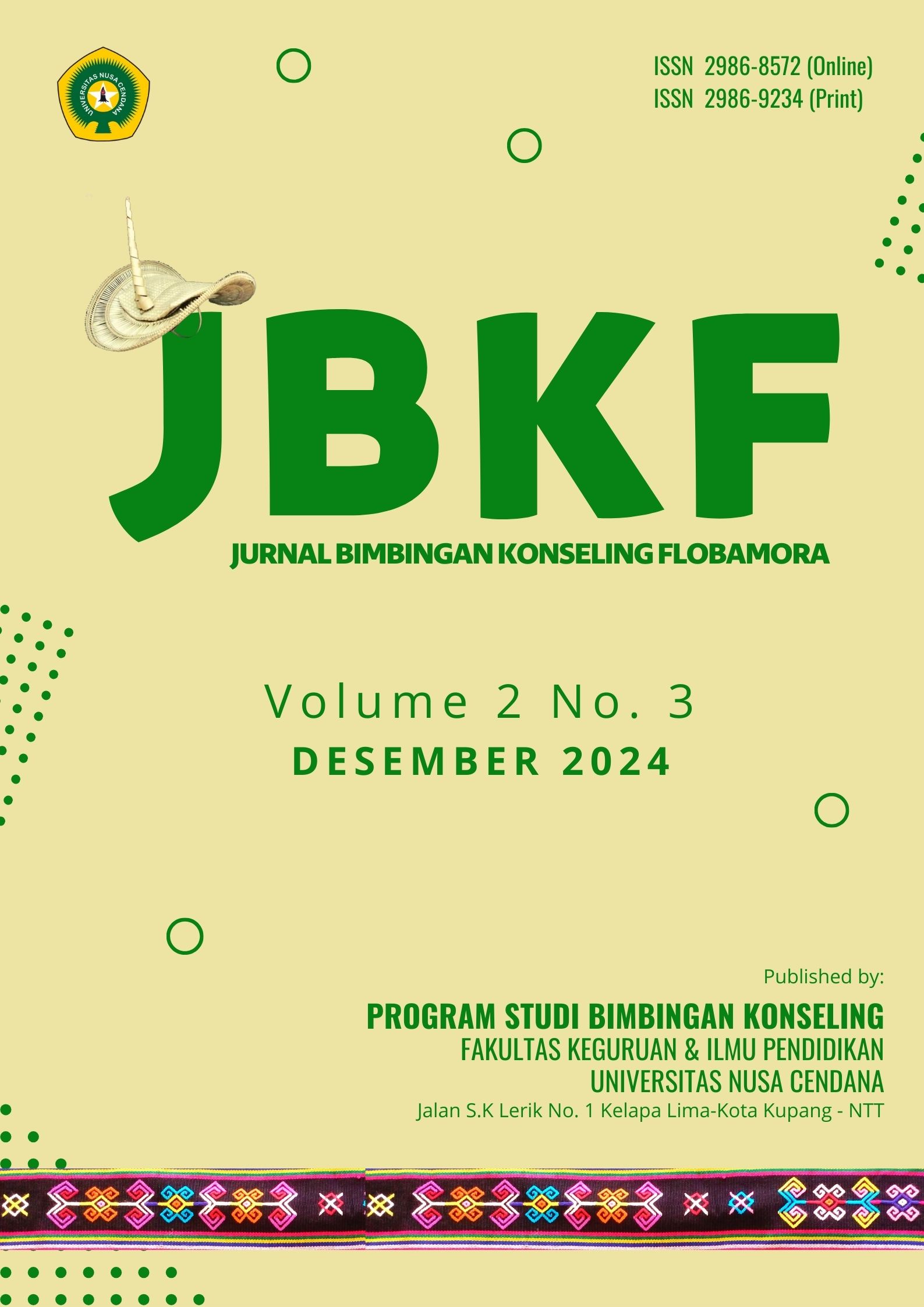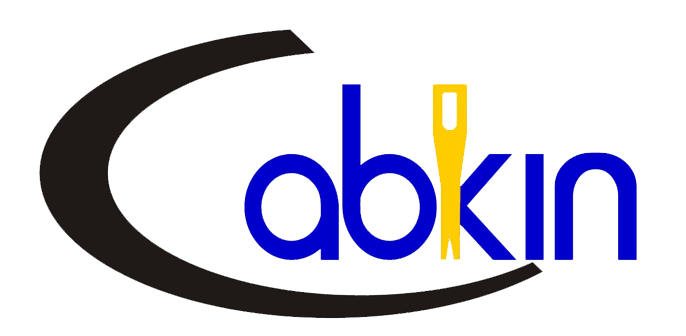SmartCounsel: Web-Based Application with TQM Framework to Enhance School Counseling Programs
Abstract
This study aims to develop SmartCounsel, a web-based application that integrates Total Quality Management (TQM) principles to improve the quality of school counselling programmes. The research methodology used a comprehensive literature review to identify best practices and challenges in the implementation of TQM and educational technology. The study results show that SmartCounsel can overcome obstacles in counselling services with automation features for scheduling, monitoring and real-time feedback. The app supports hybrid counselling (online and face-to-face) and enables active engagement of students, teachers and parents, relevant to post-pandemic needs. The findings emphasise that implementing TQM in a digital platform not only improves service efficiency but also promotes continuous improvement. The study recommends further research to examine the impact of SmartCounsel on student learning outcomes and the effectiveness of counselling programs in various educational contexts.
Downloads
References
Abdurrahman, T. R. (2021). Implementation of Guidance and Counseling Program in Madrasah Aliyah Islamic Boarding School Darul Ulum Asahan. International Journal of Education Social Studies and Management (Ijessm), 14–28. https://doi.org/10.52121/ijessm.v1i2.28
Akgül, G., & Ergin, D. A. (2022). School Counselors’ Attitude Toward Online Counseling Services During the Pandemic: The Effects of Resilience and Digital Self‐efficacy. Psychology in the Schools, 59(8), 1672–1685. https://doi.org/10.1002/pits.22716
Arianti, A. E. (2023). Implementation of Cyber Counseling in the Merdeka Belajar Curriculum in the Era of Society 5.0. Journal of Research in Instructional, 3(2), 358–372. https://doi.org/10.30862/jri.v3i2.313
Awalya, A., Khiyarusoleh, U., Oktava, M. A., Gumelar, F. A., & Fajriyani, D. S. I. (2023). Management Models of Guidance and Counseling Services to Increase Performance Based on Android Applications. KONSELING EDUKASI “Journal of Guidance and Counseling,” 7(1), 129–139. https://doi.org/10.21043/konseling.v7i1.17226
Bamijoko-Okungbaye, A., & Idemudia, E. S. (2020). Digital Mental Health in Ireland: Effectiveness and the Future of the Service. Brain Broad Research in Artificial Intelligence and Neuroscience, 11(2), 57–71. https://doi.org/10.18662/brain/11.2/74
Bradford, S., & Rickwood, D. (2014). Electronic Psychosocial Assessment Tool: Concept Development and Identification of Barriers to Successful Implementation. Journal of Technology in Human Services, 32(4), 275–296. https://doi.org/10.1080/15228835.2014.967906
Danylchuk, N. R., Cook, L., Shane-Carson, K., Cacioppo, C. N., Hardy, M., Nusbaum, R., Steelman, S., & Malinowski, J. (2021). Telehealth for Genetic Counseling: A Systematic Evidence Review. Journal of Genetic Counseling, 30(5), 1361–1378. https://doi.org/10.1002/jgc4.1481
Fahriza, I., Supriatna, M., Suryahadikusumah, A. R., Rayaginansih, S. F., Nadhirah, N. A., & Nadya, A. (2023). Technology Framework in Guidance and Counseling Services. Indonesian Journal of Educational Counseling, 7(1), 23–31. https://doi.org/10.30653/001.202371.247
Goodman‐Scott, E., & Boulden, R. (2022). Development and Validation of the School Counselor Classroom Management Inventory. Professional School Counseling, 26(1). https://doi.org/10.1177/2156759x221111878
Goodman‐Scott, E., & Grothaus, T. (2017). RAMP and PBIS: “They Definitely Support One Another”: The Results of a Phenomenological Study (Part One). Professional School Counseling, 21(1). https://doi.org/10.5330/1096-2409-21.1.119
Kalkan, B. (2020). Integrating Technology in Counselor Education Programs. Kastamonu Eğitim Dergisi, 28(3), 1181–1189. https://doi.org/10.24106/kefdergi.3662
Lapan, R. T., Whitcomb, S. A., & Aleman, N. M. (2012). Connecticut Professional School Counselors: College and Career Counseling Services and Smaller Ratios Benefit Students. Professional School Counseling, 16(2), 117–124. https://doi.org/10.5330/psc.n.2012-16.124
Lewis, T., Jones, K. D., Militello, M., & Meisenhelder, R. (2020). A Clear and Consistent Focus on Students: Principals’ Perceptions of the Role of School Counselors. Journal of School Leadership, 32(1), 3–26. https://doi.org/10.1177/1052684620972067
Mason, E., Griffith, C., & Belser, C. T. (2018). School Counselors’ Use of Technology for Program Management. Professional School Counseling, 22(1). https://doi.org/10.1177/2156759x19870794
Mason, E., Michel, R. E., Young, A., Olsen, J., Tillery, C. A., & Chang, M. (2023). School Counselor Leadership and Program Implementation Revisited: Findings From a National Sample. Professional School Counseling, 27(1). https://doi.org/10.1177/2156759x231182144
Mullen, P. R., Stevens, H., & Chae, N. (2018). School Counselors’ Attitudes Toward Evidence-Based Practices. Professional School Counseling, 22(1). https://doi.org/10.1177/2156759x18823690
Rumsey, A. D., & Milsom, A. (2018). Supporting School Engagement and High School Completion Through Trauma-Informed School Counseling. Professional School Counseling, 22(1). https://doi.org/10.1177/2156759x19867254
Sabella, R. A., Bixler, K., Ungarean, M., Koklu, O., & Tilman, A. L. (2023). Validating the Educational Leaders’ Knowledge of School Counseling Inventory. Professional School Counseling, 27(1). https://doi.org/10.1177/2156759x231187618
Savitz-Romer, M., Nicola, T. P., Rowan-Kenyon, H. T., & Carroll, S. R. (2023). A Landscape Analysis of State-Level School Counseling Policy: Perspectives From State Officials. Educational Policy, 38(2), 421–447. https://doi.org/10.1177/08959048231163803
Shi, Q., & Brown, M. H. (2020). School Counselors’ Impact on School-Level Academic Outcomes: Caseload and Use of Time. Professional School Counseling, 23(1_part_3). https://doi.org/10.1177/2156759x20904489
Slaten, C. D. (2024). School Counselors’ Current Experiences in the Classroom in a Post-Pandemic Era: A Mixed-Methods Study. Professional School Counseling, 28(1b). https://doi.org/10.1177/2156759x241247165
Sowell, S. M., Hunter, Q., Richey, K. G., & Baxter, C. (2020). Demonstrating School Counselor Efficacy in Individual Interventions Using Single-Case Research Design: A Guided Process. Professional School Counseling, 23(1_part_3). https://doi.org/10.1177/2156759x20904491
Supriyanto, A., Hartini, S., Irdasari, W. N., Miftahul, A., Oktapiana, S., & Mumpuni, S. D. (2020). Teacher professional quality: Counselling services with technology in Pandemic Covid-19. Counsellia: Jurnal Bimbingan Dan Konseling, 10(2), 176–189. https://doi.org/10.25273/counsellia.v10i2.7768
Zyromski, B., & Dimmitt, C. (2022). Evidence-Based School Counseling: Embracing Challenges/Changes to the Existing Paradigm. Professional School Counseling, 26(1a). https://doi.org/10.1177/2156759x221086729
Copyright (c) 2024 Mohamad Awal Lakadjo

This work is licensed under a Creative Commons Attribution 4.0 International License.

 Mohamad Awal Lakadjo(1*)
Mohamad Awal Lakadjo(1*)




.png)

_copy1.jpg)


